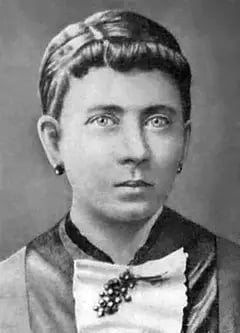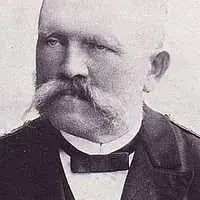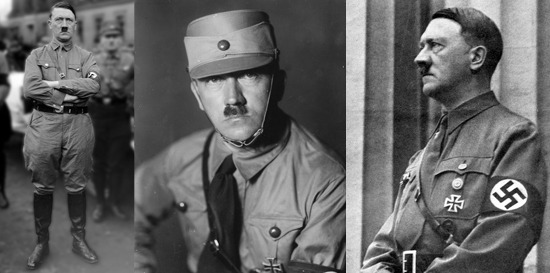"Adolf Hitler’s Deep Bond with His Mother, Klara Hitler: Unraveling the Emotional Connection That Shaped History"
Discover the unique bond between Adolf Hitler and his mother, Klara Hitler. This in-depth analysis examines how her unwavering love and tragic death influenced his emotional development and shaped his future decisions."


Hitler’s Relationship with His Mother, Klara Hitler
Adolf Hitler, one of the most infamous figures in history, is often analyzed for the impact of his early life on his later actions. While much attention is given to his strained relationship with his father, Alois Hitler, the bond Adolf shared with his mother, Klara Hitler, offers a stark contrast. Klara was a devoted and nurturing presence in Adolf’s life, and her influence played a significant role in shaping his personality, emotional framework, and future trajectory. This blog delves into the depth of Hitler’s relationship with Klara Hitler, exploring how her love, care, and eventual death profoundly affected him.
Klara Hitler: A Devoted Mother
Klara Hitler was born in 1860 in the Austrian village of Spital. Described as gentle, kind, and deeply religious, she was the epitome of a traditional mother of her time. Klara married Alois Hitler, her distant relative, and dedicated her life to supporting her husband and raising their children. Out of six children, only Adolf and his younger sister Paula survived into adulthood, making her bond with Adolf particularly strong.
From an early age, Adolf was the recipient of Klara’s undivided attention and affection. Unlike his father, who was strict and authoritarian, Klara was tender and protective. She often acted as a buffer between Adolf and Alois during their frequent arguments, creating a safe emotional haven for her son. Her devotion to Adolf fostered an unusually close bond, one that would have lasting implications for his emotional development.
The Protective Influence of Klara
Adolf’s early life was marked by the dichotomy between his father’s rigid discipline and his mother’s indulgent care. While Alois criticized Adolf for his academic shortcomings and lack of interest in civil service, Klara supported his artistic aspirations. She encouraged his creativity, even as it became clear that Adolf’s academic performance was faltering. Klara’s unwavering support gave Adolf a sense of validation and self-worth that he struggled to find elsewhere.
For Adolf, Klara represented unconditional love and acceptance, a stark contrast to the demanding and often dismissive demeanor of Alois. This protective influence allowed Adolf to develop a strong attachment to his mother, viewing her as his sole source of emotional stability. This relationship was so profound that even historians who have critically examined Hitler’s life note the unique depth of his affection for Klara.
The Impact of Alois Hitler’s Death
When Alois Hitler died suddenly in 1903, Klara became the central figure in Adolf’s life. She assumed full responsibility for the household and worked tirelessly to provide for her children. The absence of Alois’s authoritarian presence allowed Adolf to grow closer to his mother, further deepening their bond. Klara continued to support Adolf’s aspirations, even as financial constraints and societal expectations placed immense pressure on the family.
After Alois’s death, Adolf began to express more openly his desire to pursue art as a career. Klara’s encouragement of his dreams, despite their financial struggles, demonstrated her commitment to her son’s happiness. Her sacrifices solidified her role as a pillar of love and support in Adolf’s life.
The Tragic Illness and Death of Klara Hitler
In 1907, Klara was diagnosed with breast cancer, a devastating blow to the young Adolf. At just 18 years old, he watched helplessly as his mother’s health deteriorated rapidly. Klara underwent painful treatments, including the use of iodoform, a harsh and experimental remedy at the time. Despite the efforts of Dr. Eduard Bloch, the family physician who was Jewish and highly regarded by the Hitlers, Klara succumbed to her illness on December 21, 1907.
Klara’s death was a turning point in Adolf’s life. He was reportedly inconsolable, describing the loss as the greatest tragedy he had ever experienced. Witnesses, including Dr. Bloch, noted Adolf’s profound grief and devotion during Klara’s final days. He referred to her as the only person he had ever truly loved, underscoring the depth of his attachment to her.
Emotional Aftermath of Klara’s Death
Klara’s death left Adolf in a state of emotional turmoil. Without her guidance and support, he struggled to find direction in his life. He moved to Vienna in pursuit of his artistic dreams, only to face rejection from the Academy of Fine Arts. This series of failures compounded his feelings of loneliness and despair, setting the stage for the bitterness and resentment that would later define his worldview.
The loss of his mother also exacerbated Adolf’s sense of isolation. In her absence, he lacked a stabilizing influence and began to drift toward extremist ideologies. His inability to process his grief and find a healthy outlet for his emotions contributed to the formation of his rigid and uncompromising personality.
Klara’s Legacy in Adolf Hitler’s Life
While Klara Hitler’s death marked the end of Adolf’s childhood innocence, her influence continued to shape him in subtle ways. Her unwavering support of his aspirations, even in the face of adversity, instilled in him a sense of determination and self-belief. However, her loss also left an emotional void that he sought to fill through his ambitions and, later, his radical political pursuits.
Adolf’s reverence for his mother persisted throughout his life. He reportedly kept her photograph close, and during the height of his political career, he often spoke of her with fondness. Historians have speculated that his relationship with Klara contributed to his complex personality, including his capacity for both intense loyalty and ruthless detachment.
Psychological Analysis of the Mother-Son Bond
Psychologists have often explored the significance of Adolf’s bond with Klara in understanding his later behavior. The intense attachment he felt toward his mother may have created an idealized image of her, making her death an irreparable emotional blow. This unresolved grief likely contributed to his inability to form healthy relationships and his subsequent reliance on ideology as a means of finding purpose.
The dynamic between Klara and Adolf also offers insight into his psychological makeup. Her nurturing and protective nature may have fostered a sense of entitlement, while her death left him with feelings of abandonment and vulnerability. This combination of traits could explain his later need for control and domination, as well as his deep-seated insecurities.
Conclusion
The relationship between Adolf Hitler and his mother, Klara Hitler, was one of profound love and devotion. Klara’s nurturing presence provided Adolf with emotional security during a turbulent childhood, shaping his personality and aspirations. Her untimely death left an indelible mark on him, contributing to the emotional struggles and insecurities that would later define his life.
Understanding this pivotal relationship offers valuable insight into the early experiences that shaped one of history’s most controversial figures. While Klara’s influence was largely positive, her loss created a void that Adolf sought to fill through his ambitions and ideologies. This complex interplay of love, loss, and longing underscores the enduring impact of Klara Hitler on her son’s life and legacy.



